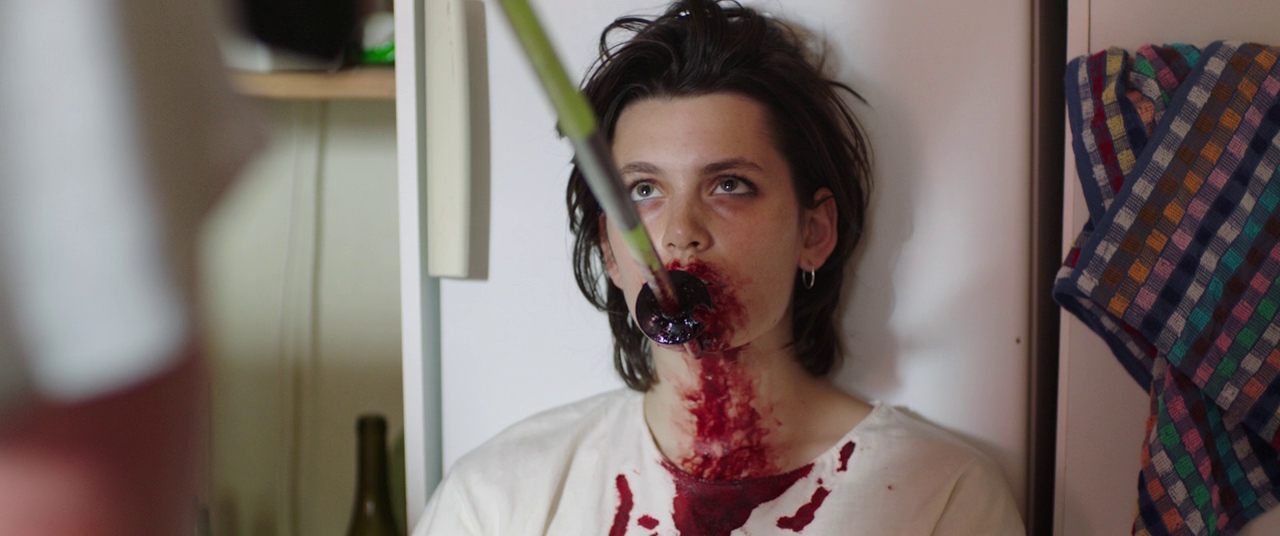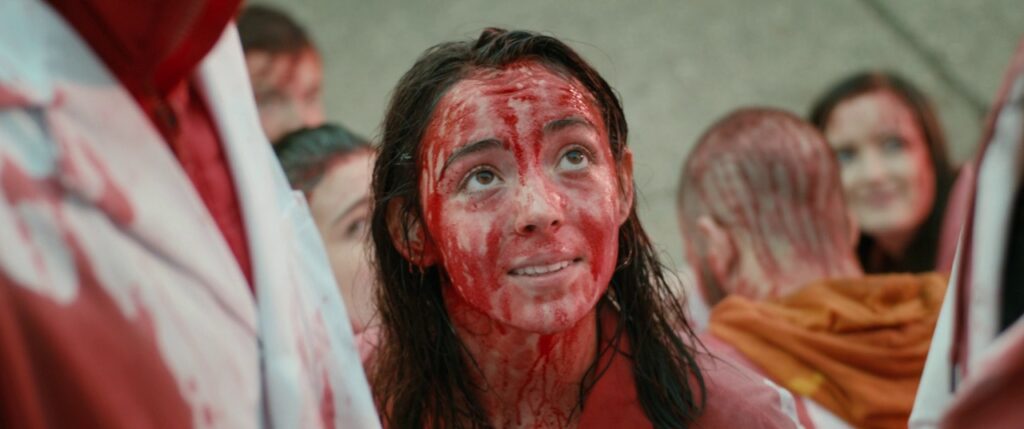
Julia Ducournau’s Raw (2016) dives headfirst into the very core of human taboos, emerging a blood-soaked masterpiece of psychological and visceral horror.
It’s a brutal, unapologetic psychoanalysis of awakening desires, inherited monstrousness, and the terrifying, insatiable hunger that lurks beneath the veneer of civilization. For those who dare to explore the dark corners where instinct collides with identity, Raw offers a feast for the mind, if not for the stomach.
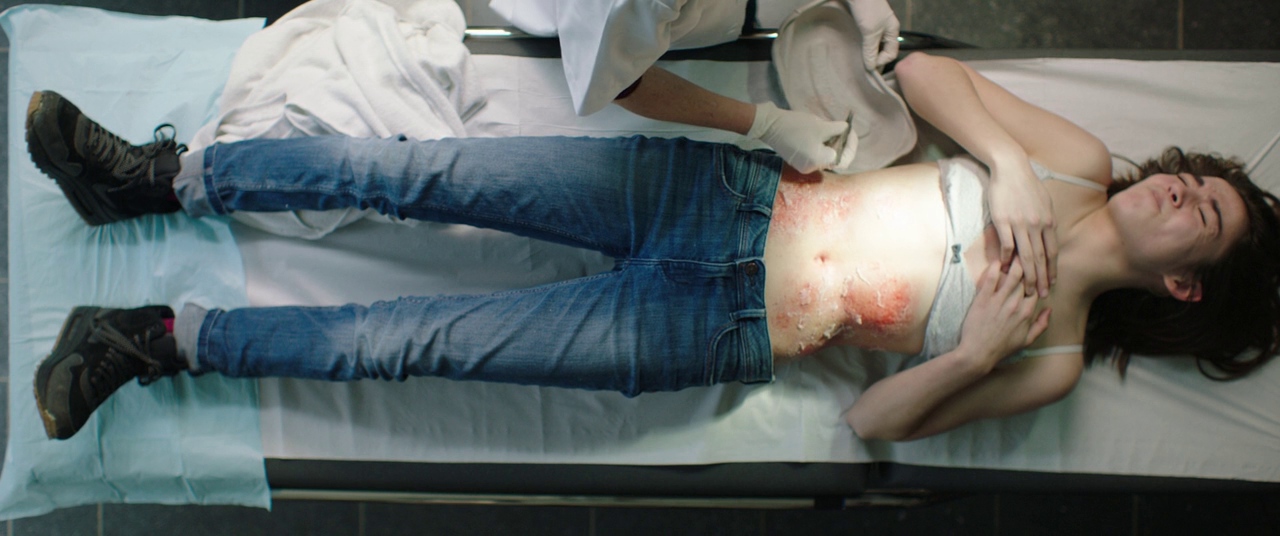
We meet Justine (Garance Marillier), a strict, lifelong vegetarian, as she embarks on her first year at a prestigious veterinary school, following in the footsteps of her older sister, Alexia (Ella Rumpf), and her parents. The hyper-sensory world of the veterinary school, with its hazing rituals and animal dissections, immediately confronts Justine with the raw, messy reality of flesh and blood. This environment, far from her sheltered upbringing, acts as a crucible, designed to strip away her carefully constructed identity and expose her to primal urges.
The catalyst for her horrifying transformation is a forced initiation ritual: the consumption of a raw rabbit kidney. This seemingly innocuous act, a violation of her deeply held vegetarian principles, unlocks something ancient and ravenous within her. What follows is not merely an illness, but an eruption of repressed desire. Justine’s body begins to rebel, breaking out in rashes, demanding meat, and culminating in a desperate, uncontrollable craving for flesh. This isn’t just a physical craving; it’s a profound psychological shift, a shedding of her “good girl” persona for something wild, dangerous, and utterly predatory.
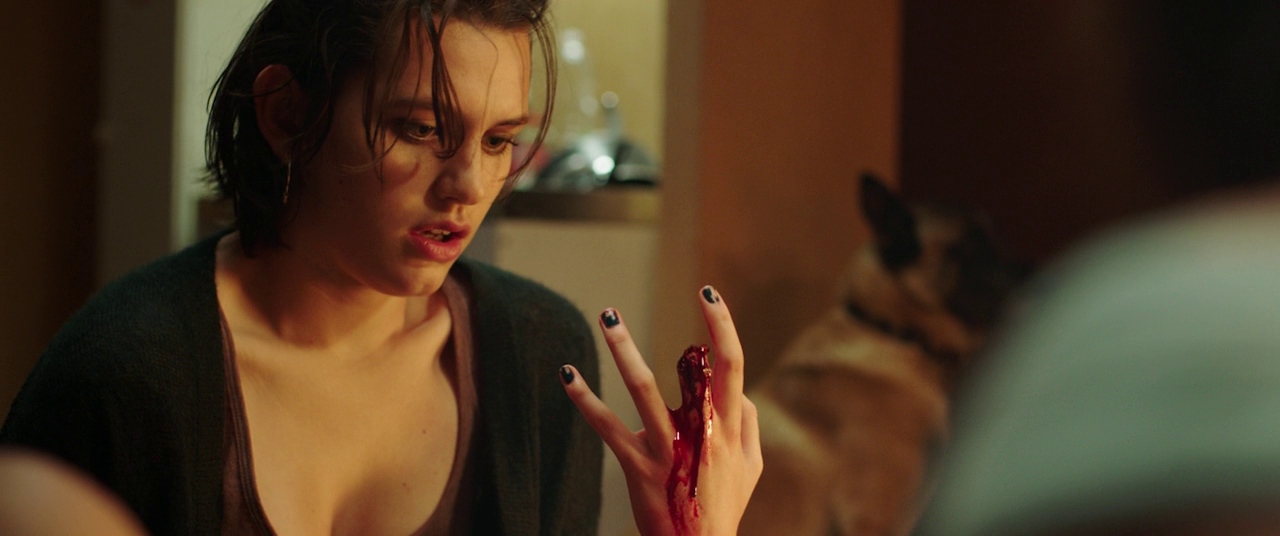
The true horror of Raw lies in its exploration of identity and the monstrous feminine. Justine’s cannibalistic awakening is intrinsically linked to her sexual and emotional maturation. As she navigates the confusing landscape of college life, first crushes, and burgeoning sexuality, her hunger for flesh escalates. Ducournau masterfully intertwines these two awakenings, suggesting that the primal urge to consume is deeply connected to the exploration of one’s own desires and the breaking of societal taboos, particularly those surrounding female appetite and power.
Alexia, the older sister, serves as both a guide and a terrifying reflection. She is already fully immersed in the world Justine is just discovering, hinting at her own monstrous depths. The sisterly bond, initially strained, becomes a complex dance of rivalry, protection, and a shared, terrifying secret. Alexia’s actions, often cruel and manipulative, push Justine further down the rabbit hole, forcing her to confront the reality of their shared, hereditary monstrousness. Their relationship is a psychoanalytic mirror, showing Justine what she is becoming, and what she has always been.
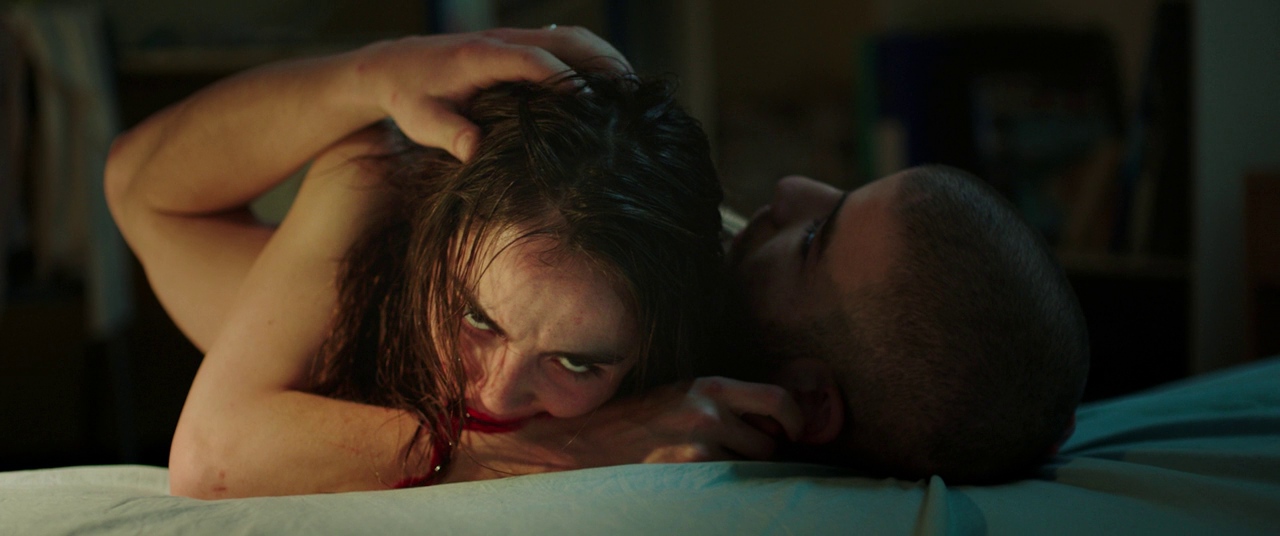
The film’s visual language is relentlessly visceral. From the realistic animal dissections to the shocking acts of self-mutilation and cannibalism, Ducournau doesn’t shy away from the grotesque. But this isn’t gratuitous; it’s a crucial part of the film’s psychological impact. The bodily fluids, the torn flesh, the uncomfortable sounds of chewing—all serve to immerse the viewer in Justine’s horrifying sensory experience, making her transformation unnervingly palpable. The body, usually a vessel, becomes a site of monstrous transformation, a betrayal of the self.
Raw delves into the concept of inherited trauma and the “return of the repressed.” The reveal of the parents’ own dark secret at the end of the film recontextualizes everything. Justine’s hunger isn’t a random aberration; it’s a genetic inheritance, a primal urge passed down through generations. This suggests that some “monsters” are not made, but born, and that the struggle for identity can involve confronting a terrifying, innate nature. The final image, hinting at the father’s own secret, wraps the film in a chilling cycle of inherited appetite, leaving us with a profound sense of unease.
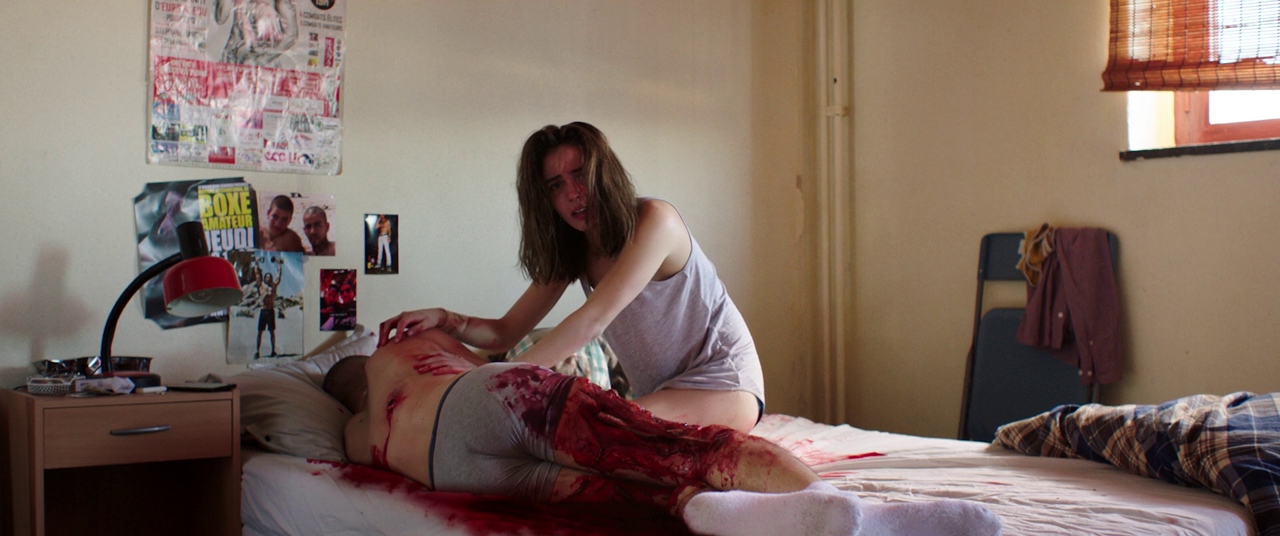
Ultimately, Raw is a daring exploration of what it means to be truly “human” when confronted with one’s most primal instincts. It asks: how much of our identity is socially constructed, and how much is dictated by the untamed urges of our biology? It’s a terrifying, beautiful, and deeply unsettling film that explores the profound horror of discovering that the monster isn’t just external, but resides within, waiting for the right catalyst to awaken its insatiable hunger.
